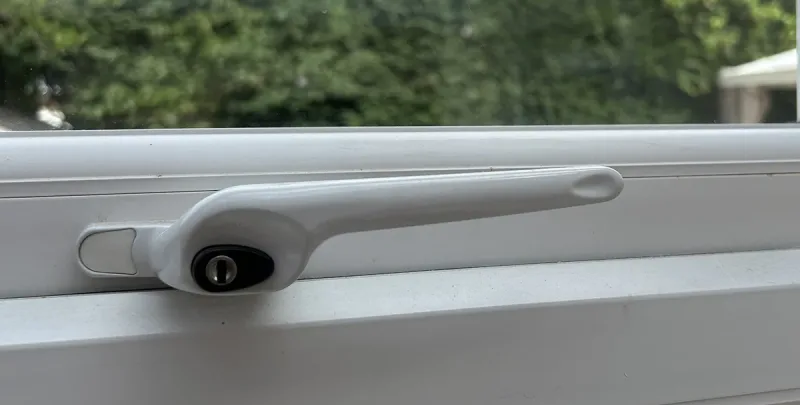Compare Home Insurance Quotes Online
A huge proportion of the UK population now prefer to go online to compare home insurance products from leading home insurance companies. The younger generation in particular prefer to go online where they expect instant access to consider products and prices at the click of a mouse. The online price comparison websites are sometimes referred to as ‘aggregators’ in the insurance world. They provide a comprehensive and easy-to-use way to compare home insurance policy details, based on a homeowners individual situation. Yet the traditional insurance industry is still voicing it’s concerns over the quality of the contrasting results displayed by popular online comparison websites.
Using Price Comparison Websites– price comparison sites may not offer ‘whole of market’ product choices. The number of alternative home insurance products that can be considered is limited to deals the comparison website has agreed with insurance companies and insurance intermediaries. Despite this insurance comparison websites offer a fantastic choice to inspect and examine a large number of home insurance deals quickly. Most people simply don’t have time to drive down to find their local insurance broker and sit down for a face-to-face meeting, to discuss their home insurance requirements. It could take hours. Whereas price comparison websites allow you to choose and scrutinize between a range of factors in seconds, to correlate a set of product results that match up your buying criteria. These online results provide links to specific ‘Policy Wordings’ and ‘Terms of Business’ on the providers own website, allowing the consumer to stack up one deal against another.
Should I Compare Home Insurance on Price Alone? – the fundamental basis of comparison websites it’s too compare products based primarily on price. Most homeowners would probably agree that finding cheapest home insurance is the domineering factor in their minds, when making comparisons, (regardless of whether sourced online or from their traditional high street insurance broker). The ongoing public debate focuses not on aggregators marketing on price per se, but the suitability and value for money in relation to prices quoted. Pundits argue that in many cases comparing an insurance policy from different providers simply cannot be done on a ‘like-for-like’ comparison, in a way that meets the individual needs of the consumer.
Aggregators Search Results – every insurance policy promoted has a unique set of characteristics which may differ considerably from similar buildings and contents policies. Without proper consideration of all the ‘nitti gritti’ details, homeowners may not have all the facts they need to buy the most appropriate home insurance policy. These largely subjective factors are really important because they may influence the legitimacy of a future claim, the level of risk a policyholder may choose to accept, and may even leave homeowners without cover if they fail to take actions to ensure policy is valid. Buyer should consider the following factors before deciding to buy one home insurance policy against selecting another:-
- Choosing Policy Excesses – within the limits of comparing a wide range of factors (based on one generic customer requirement form), price comparison websites provide ‘like for like’ comparison of available criteria. These results are always sorted by price. At this point consumers can ‘manually increase or decrease’ the level of excess. This allows them to take on more risk in exchange for a lower premium. This aims to minimize the number of small claims householders submit by making it uneconomical to do so. The quotations presented online assume that consumers understand the implications of setting their own price in the event of a future insurance claim. In other words they are not discussing their individual circumstances with a human in any professional capacity. To make matters worse some insurers may offer slightly different compulsory and voluntary excesses, making it tricky for consumers to consider policy A versus policy B. The excess levels relative to price discounts may differ considerably between products.
- Different Policy Wordings – with aggregators consumers have to accept that they have access to the relevant policy documents presented to them and can easily interpret and compare the policy wordings accordingly. However in practice if your home insurance search brings up 20 or 30 possible alternatives, weighing up the small print (by clicking through to every provider’s website and reading all of the Policy Wording documents) would seem unrealistic for most busy people. Most people might inspect the top 3 cheapest wordings to save time.
- Range of Perils Covered – it is highly likely that when home owners contemplate buying one policy over another, the perils covered within all the varying policy wordings differ slightly. For instance most insurance policies will cover burst pipes, general perils such as fire, lightening, explosion, earthquake, subsidence & Theft amongst others. As a minimum most mainstream home insurance policies scope of covers aims to satisfy the Council of Mortgage Lenders Handbook (so mortgage lenders are confident any monies invested in a home are insured to a comprehensive standard). However other insurers may specifically exclude certain perils (such as subsidence or flood). If a major peril such as flood or subsidence is excluded by an insurer for underwriting reasons then it should be pointed out to you. In particular homeowners of non-standard buildings such as listed buildings, houses with thatched roofs or any type of property in a flood zone need to ponder and scrutinise the small print carefully. So if you are trying to measure or match up one set of perils against a rival set, be careful your final choice matches your individual needs.
- Warranties and Conditions Offered – the wordings and descriptions inevitably differs between insurance policy documents. These warranties and conditions dictate everything from your levels of cover to exclusions. If two sets off wordings have been phrased completely differently it can make interpreting them and scrutinising between one policy or another more difficult.
- Proactive Actions to Ensure a Policy is Valid – to avoid any future claims being invalidated many policies insist householders make practical home improvements, that will bring their property up to a standard expected by the insurance company. In particular many policies specify the type of window locks, door locks and security systems that are required, to help minimise the risks of burglary. As many insurers specifications for what homeowners must do differs, comparing becomes (once again) a task for users to manually go through the small print of the Policy Wording. You will need to contrast how exhaustive, complicated or expense the insurers DIY action list is.
- Customer Service and Making an Insurance Claim – don’t forget to weigh up what you have experienced or have heard, or read about different insurers quality of service when dealing with any future claim. Anyone who has previously gone through a claims process will understand how important it is that insurance companies claims handling process is efficient and fair. If you have never submitted a home insurance claim in your life, you may experience differing levels of customer service. This may range from ‘professional and efficient’ to ‘deeply upsetting and stressful’, depending upon which company you are insured with. That said the Financial Services Authority expect companies to maintain a satisfactory claims handling service and within your policy document will be details of how to make a complaint if you are unsatisfied with the service you receive. Internet forums of major UK financial portals are littered with horror stories, detailing difficulties in making home insurance claims. Please remember that 99% of those posts are inevitably moans and criticisms (rather than praise). That said remember there is no point being insured if you’re not 100% confident your insurance company will pay out in the event of a home insurance claim (and do so in such a way as to not waste huge amounts of your time and patience).
- Optional Extras – you may find that rival competitors may bundle together additional add-ons to your basic policy, (such as legal expenses or home emergency cover for your boiler), whereas others may not. Stack up the cost of buying these policies separately versus a bundled deal – as the overall premiums may differ accordingly.
As Assetsure we can provide a home insurance quote in minutes. Please feel free to call us on the telephone number above or click ‘get a quote’ above.





























